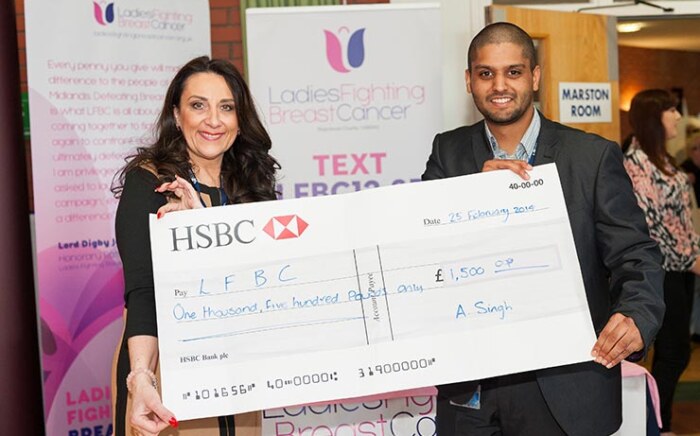Over 55,000 people in the UK are diagnosed with breast cancer each year. That means one in eight women will be diagnosed at some stage in their life *1. Upon first being told the news, a woman may not know how they’re going to cope with the disease and how it will go on to impact their life. They will face challenges they never thought they’d have to; both physically and mentally. A loved-one may feel a sense of helplessness in supporting them through this difficult time, due to the emotional and bodily distress that follows a diagnosis.
While everyone experiences their breast cancer journey differently, there are a number of changes that the majority of women face:
Emotional impact
The emotional impact of being diagnosed with breast cancer can’t be underestimated. A woman may find the entire concept difficult to process; perhaps feeling as though they have completely lost control of their own health and ask themselves the question, ‘Why me’? Many women don’t realise their feminine identity is encapsulated with their relationship with their breasts and this can have a huge effect on them. They may need help and support to develop a new relationship with their body and their concept of feminine.
Typical emotions cancer patients experience include anger, depression and anxiety.
Some people find it difficult to acknowledge that there are different stages of the illness and jump to the worst-case scenario, when that necessarily isn’t going to be the case.
Self-confidence issues
Breast cancer is a truly devastating illness and the aftermath of the diagnosis can often leave women feeling self-conscious about their femininity or how others may react around them – and this is completely normal. In many cases, the breast needs to be treated surgically or with radiotherapy, which can often result in a change in shape of the breast or the removal of a breast entirely. Both can be difficult to come to terms with. Chemotherapy often results in hair loss, which can be one of the toughest parts of living with cancer for many women.
Effects on fertility
For young women, being diagnosed with breast cancer can be even more traumatic after chemotherapy. Once they have undergone treatment for their diagnosis, they may experience fertility issues as an after-effect of the radiation. Chemotherapy reduces oestrogen levels in the body which can lead to menstruation problems and in worst case scenarios; an early menopause.
Lack of intimacy
Breast cancer can affect all different aspects of a woman’s life; however, one overlooked emotional change is the lack of intimacy with their partner. This may be due to their self-confidence issues or the hormonal imbalances in the brain.
Once breast cancer treatment is over, you can start to rebuild your life again both physically and mentally. Although it may take time to do so, getting the courage to seek professional counselling will help you get your life back on track.
We offer free support at our Breast Mates drop in centre – fully sponsored and facilitated by us. We offer practical and emotional support to anyone impacted by breast cancer – not just the patient. With empathy and friendship, we can be there for you to help you. Please drop in for a chat, tea or coffee and a biscuit – every Tuesday from 10.30 to 2.30 at Fisher House at the QE – B15 2GN. No appointments are needed.
*1 source:
https://breastcancernow.org/about-breast-cancer/want-to-know-about-breast-cancer/breast-cancer-facts
















